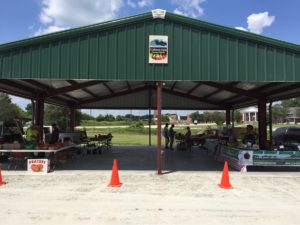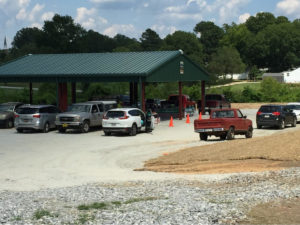Information as of December 2021
General Details
- Employees who are at a higher risk for COVID-19 based on risk factors identified by the CDC should discuss their concerns with their supervisor. If additional accommodation is needed, they should discuss these concerns and possible accommodations with the University’s ADA coordinator.
- Whenever possible, meetings should continue to be virtual. When meetings must be in-person, designate a space for such purpose.
- Continue physical distancing and use of protective equipment.
- Continue closure of areas where people congregate.
- Face coverings are not required in University facilities, but remain strongly encouraged in instructional areas (classrooms, instructional labs) and research labs.
- Anyone who wants to wear a face-covering regardless of their vaccination status is welcome to do so.
- No quarantine following known exposure for fully vaccinated individuals.
- Current recommendations for physical distancing in University facilities remain in place.
Events and large gatherings must continue to go through University protocols for approval.
Extension Offices
- Notify county government partners that the facility has reopened to the public.
- Transfer main office lines back to office phones.
- Post public health notices on all publicly accessible entrances.
- Prepare sampling areas to mitigate personal contact with the public.
- Create physical separation between all publicly accessible areas of the office and those intended to be accessed by staff only.
- Make hand sanitizer available at all entrances.
- Make supplies including, but not limited to, disinfectant wipes, disposable towels, disinfectant solution, etc. available in all commonly used areas of the office facility.
- Update sampling information on county websites and social media outlets only after the office has been deemed safely accessible to the public.
- Consider maintaining a long-term soil drop-off-only process that limits in-office interactions with the public.
- Consider delineating physical separation with marks on the floor in open spaces accessible to the public.
Extension Volunteers
Clemson Extension volunteers may return to in-person service in Stage – Yellow provided ALL the following conditions are met:
- The program-leading Extension Agent and any applicable third party or property have approved the volunteer activity.
- The volunteer follows appropriate CDC guidelines.
- Adults that have routine interaction with youth must abide by Clemson University Youth Protection Policy and Operating Standards.
- General guidance for returning to in-person volunteer service includes:
- Remain at home if you or anyone in your household is not feeling well or has a fever.
- High-risk individuals and those with significant underlying medical conditions are strongly encouraged to stay at home and take measures to limit exposure.
- Wash your hands often with soap and water for at least 20 seconds. Use hand sanitizer if soap and water are not available.
- Avoid touching your eyes, nose, and mouth.
- Try to work independently, keeping 6 feet or more apart from others.
- Frequently clean high‐touch surfaces including your cellphone/tablet, door handles, restroom surfaces, handrails, tools, etc.
- Refrain from using shared office equipment when possible. If it is necessary to use other’s equipment, sanitize between each user.
Guidance for Outdoor Service
- People should be spaced apart 6 feet or more.
- Individuals may work independently, keeping 6 feet or more apart from others in the garden.
- When possible, use your own gardening tools and equipment; shared tools and equipment should be cleaned after each use.
Communication Regarding Attendance at Educational Events
- Advise participants in advance that if they have any symptoms or feel unwell, they should not attend.
Clemson University Cooperative Extension Service offers its programs to people of all ages, regardless of race, color, gender, religion, national origin, disability, political beliefs, sexual orientation, gender identity, marital or family status and is an equal opportunity employer.


